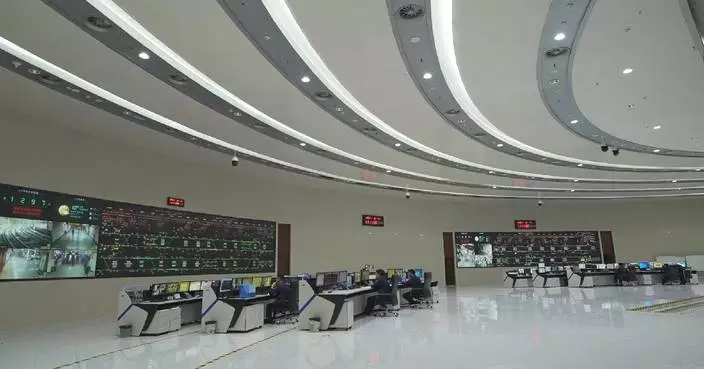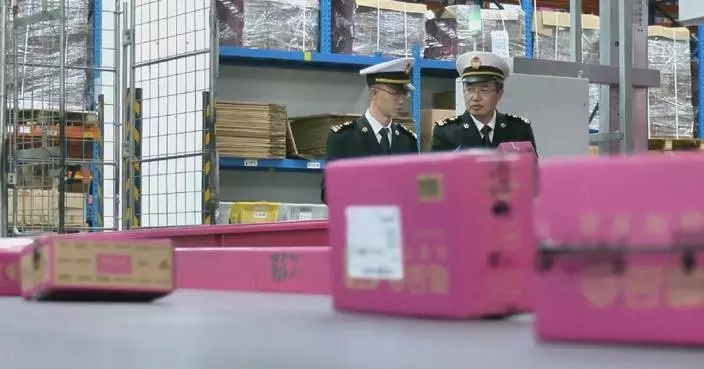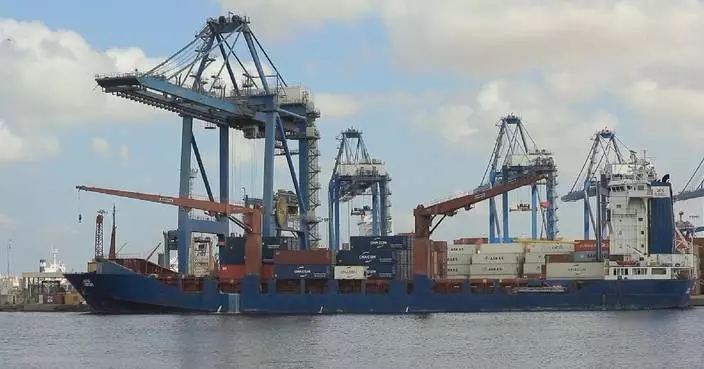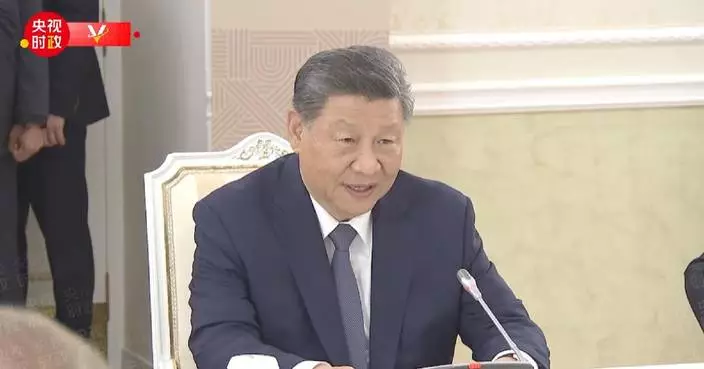In recent years, thriving e-commerce has become a main powerhouse for China-Russia bilateral trade amid the ever closer economic and trade relations of BRICS countries.
Through e-commerce platforms, specialty products from China and Russia are easily accessible to each other, bringing new opportunities for businesses in both countries.
Russian media citing data from relevant statistical agencies shows that Chinese products occupy nearly half of Russia's online trading market. These products include electronics, clothing, cosmetics and more. A few months ago, Chinese cars also began to be sold in the Russian market through e-commerce platforms, with sales continuing to grow.
In response to such rapid growth, Russia has implemented a "Made in Russia" product promotion plan to strengthen the international competitiveness of Russian products. Products under this promotion plan are now available on eight major e-commerce platforms in China.
"Sales volume on E-commerce platforms keep increasing. This is a very clear and relatively simple way for Russian manufacturers and exporters to introduce products to Chinese consumers. The selling through online platforms is easier, with lower costs and more convenient operations, compared with that through traditional stores," said Maxim Kuznetsov, deputy general manager of Russian Export Center.
Kuznetsov has noted that in the Chinese market, there is strong demand for products such as seafood, flour and salt, while sweets of the United Confections continue to lead in sales.
The United Confectioners, headquartered in Moscow, exports over 3,000 tons of products to China annually. To further increase export sales, they have also developed a new product - a green tea-flavored Swiss roll. However, the most popular product sold on e-commerce platforms remains the company's flagship product, chocolate. Considering the taste preferences of Chinese consumers, they have intentionally adjusted the recipe by reducing the sugar content.
"We sell our products on popular online platforms. We also have our own online supermarket, affiliated to the China Trading House. It is noteworthy that there are four most popular e-commerce platforms in China, namely Taobao Tmall, Douyin, JD and Pinduoduo. All of the company's products can be found on these platforms, including chocolates, biscuits, wafers and more. We are also developing other product categories. The good development of online sales in China is crucial for us, as it helps expand our target consumers and reach remote areas in China," said Sergey Stroganov, deputy director of China program of United Confectioners.
"The development of e-commerce in China is very strong. Our primary target customers prefer online shopping, with most of them being young women and young mothers. Therefore, we have developed online sales channels with the hope that sales on online platforms will further increase in the near future," said Ksenia Sovetskaya, product manager of China program of United Confectioners.
The burgeoning e-commerce platforms have also opened up more opportunities for small and medium-sized enterprises.
Gzhel Village, with a history of 700 years, is the birthplace of famous Russian folk ceramic crafts. With the development of e-commerce, the sales channels are also changing. Products are no longer showcased through traditional exhibitions but on online platforms. Currently, there is a strong interest from Chinese consumers in Russian products. The artisans there plan to increase the export volume of handicrafts to 140,000 pieces per year. The first batch of products will soon be launched in an online exhibition hall in China.
"We now have a major buyer, China. Therefore, the annual production is increasing, focusing on producing ceramic sets, sculptures, and products with zodiac elements. As the Year of the Snake is approaching, we are producing snake-related products. We also produce accessories for women, such as rings and earrings, as well as popular coffee cups. Additionally, Matryoshka dolls are also widely popular," said Maria Karitina, a painter of Gzhel porcelain factory.
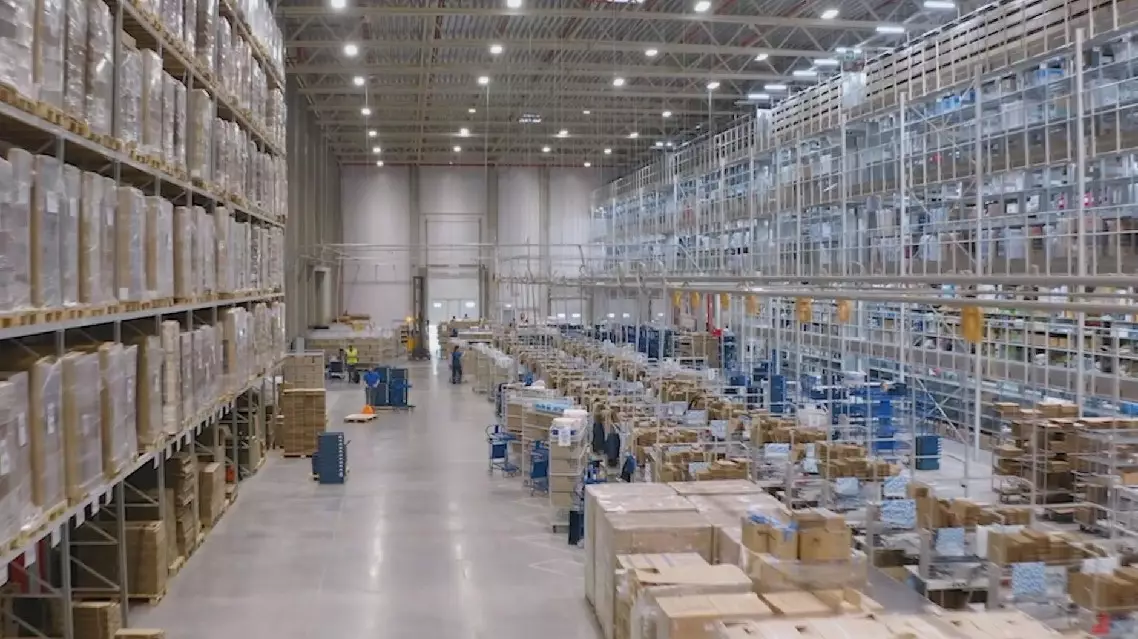
China-Russia E-commerce boosts bilateral trade
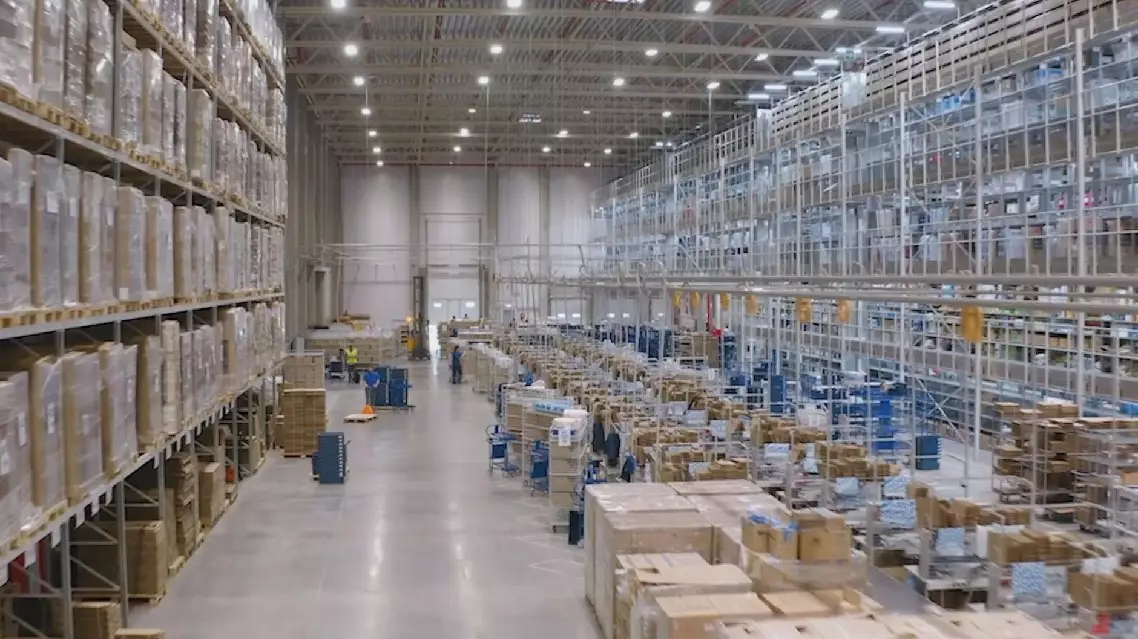
China-Russia E-commerce boosts bilateral trade




